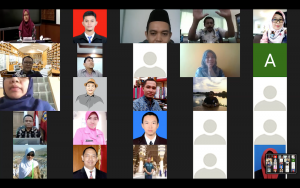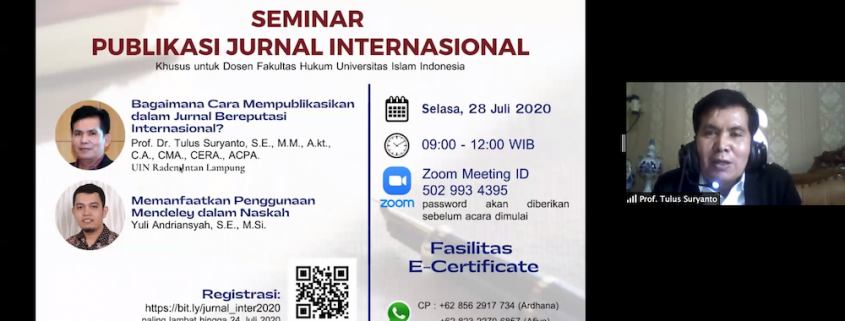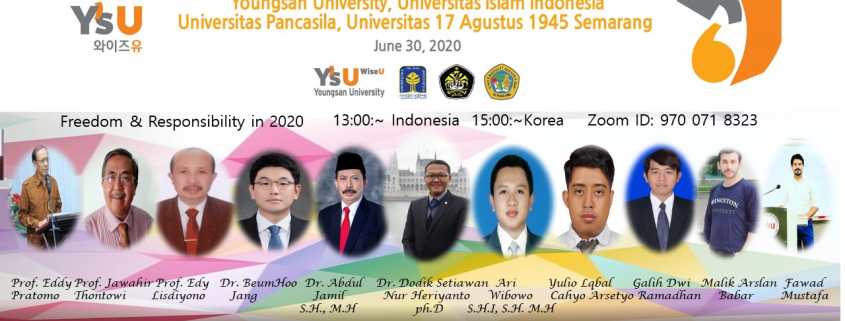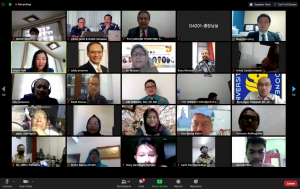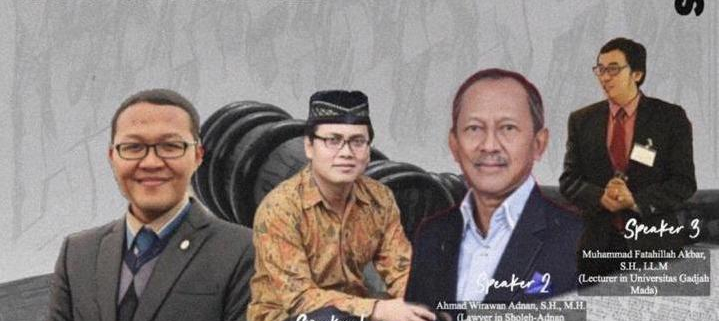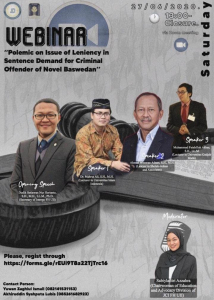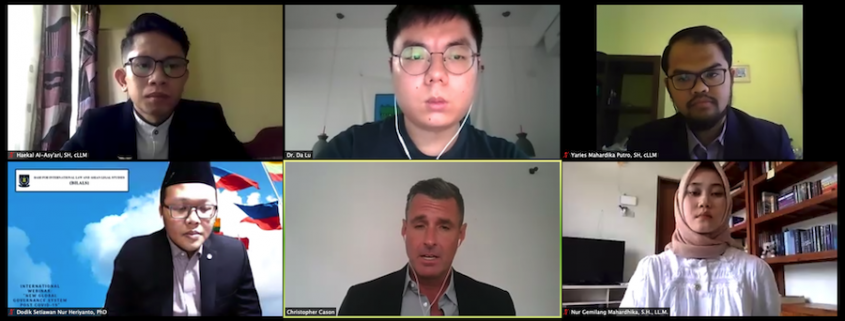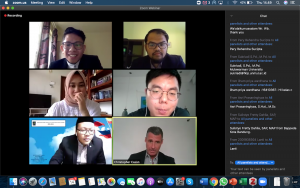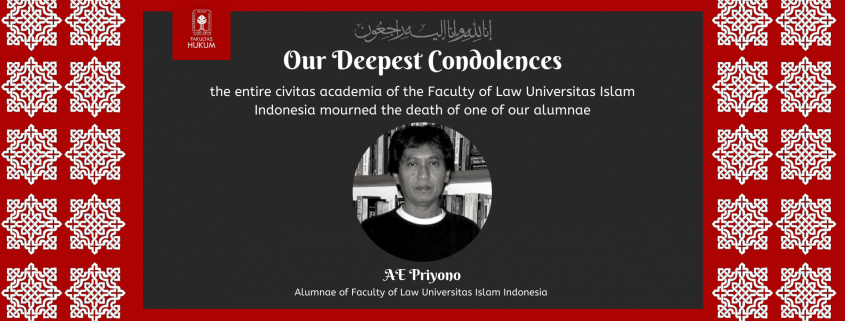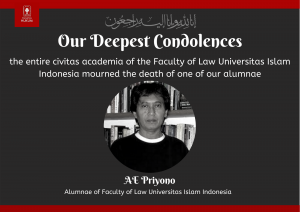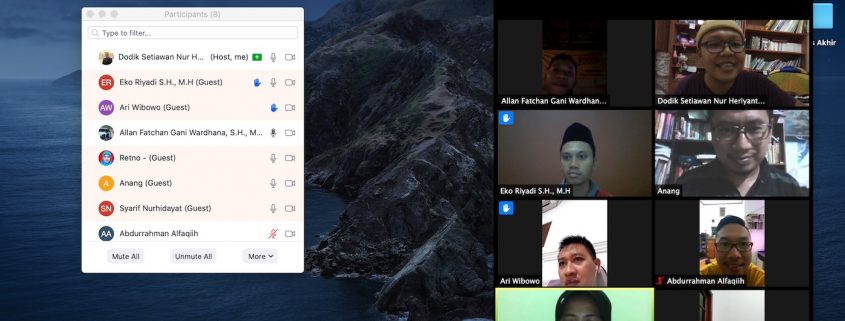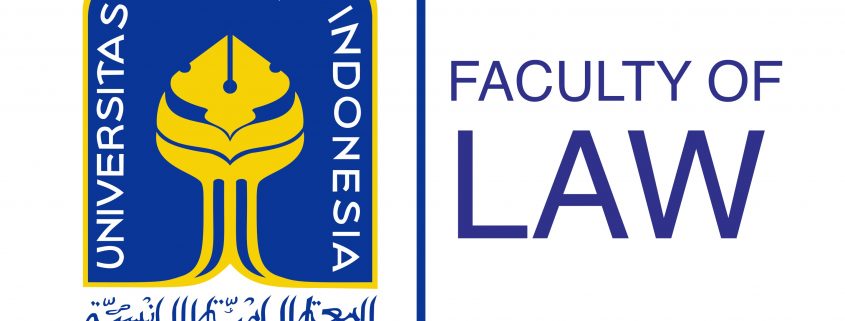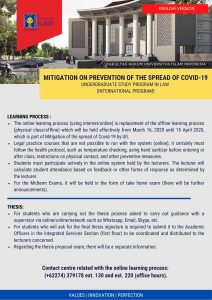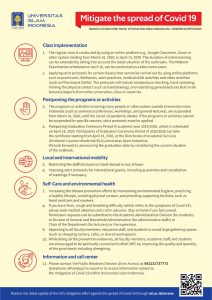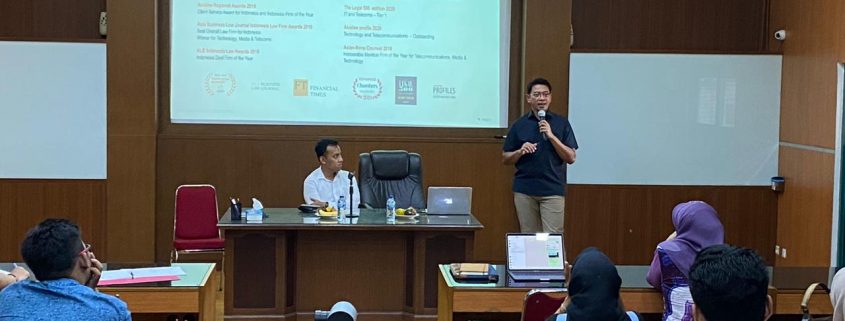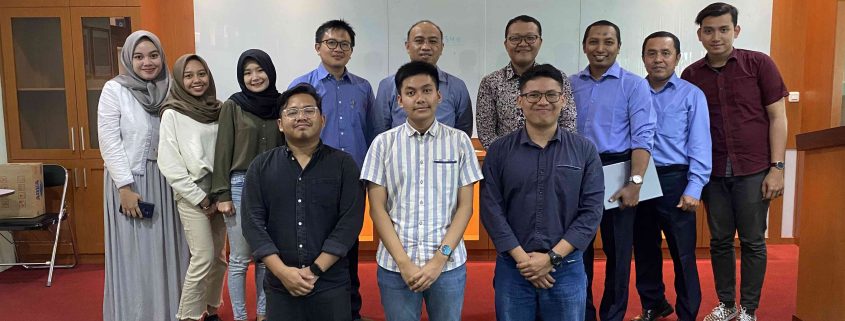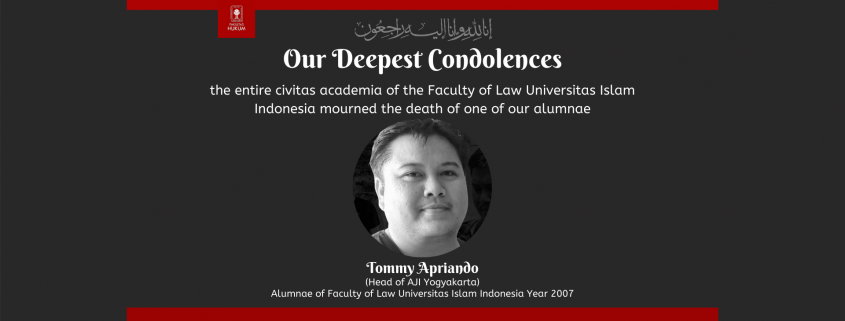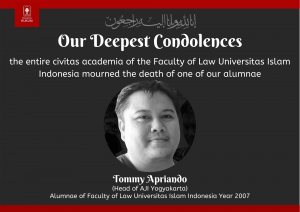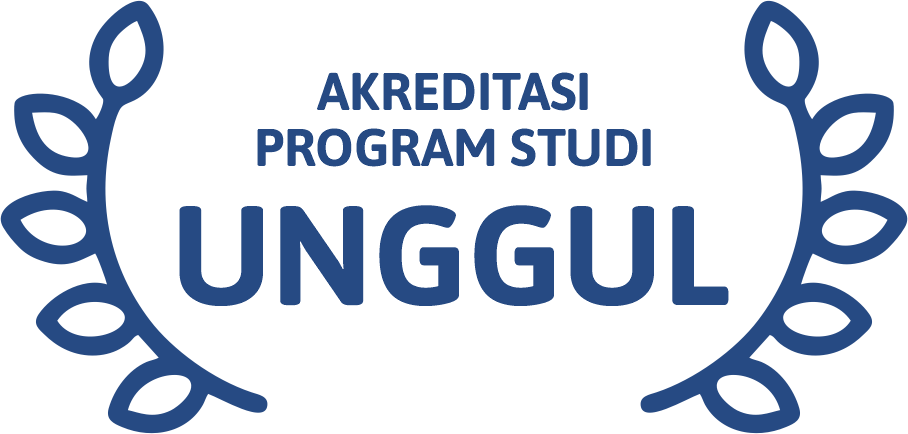The pandemic and the social distancing policy did not prevent the Faculty of Law of the Universitas Islam Indonesia from continuing to work. FH UII held an Seminar on International Journal Publication, on Tuesday (07/28-2020), as a manifestation of the commitment to achieve acceleration professor program. This seminar is held in a hybrid, which is a combination of online and offline methods, with due regard to strict health protocols. The seminar was attended by lecturers through the Zoom application and guided by the committee directly from the VIP Conference Room, Faculty of Law, Universitas Islam Indonesia. This seminar presented speakers, namely Prof. Dr. Tulus Suryanto, S.E., M.M., A.kt., C.A., CMA., CERA., ACPA., And Yuli Andriansyah, S.E., M.Sc.
The event was opened by the Dean of Faculty of Laaw, Dr. Abdul Jamil, S.H., M.H. In his remarks, Dr. Abdul Jamil explained that this seminar was a form of Faculty of Law’s commitment in supporting and implementing the professor acceleration program for its lecturers. According to Dr. Abdul Jamil, the committee initially planned a two-day offline training activity for lecturers. However, a pandemic outbreak forced these activities to not be carried out. Instead of being fully cancelled, Faculty of Law remains committed to carrying out activities in different forms and concepts, through seminars that utilize a hybrid system.
Dr. Abdul Jamil himself gave remarks and opened the event directly from his office in the Faculty of Law Building. Even though the committee was in one building, the number of people in the room was taken into consideration in the holding of this seminar. “We limit the number of participants (in the room), up to five people,” explained the Head of the Organizing Team, Dodik Setiawan Nur Heriyanto, S.H., M.H. Faculty of Law itself still applies policies to work and lectures from home. However, the enthusiasm of the lecturers in participating in this activity seemed unshakeable. The seminar was attended by dozens of FH UII lecturers through the Zoom Meeting Platform.
The first speaker, Prof. Tulus Suryanto gave his material presentation on tips on how to publish in internationally reputable journals. Through Zoom from Lampung, Prof. Tulus Suryanto explained how important research and publications are for lecturers. According to him, research and publications are common in the academic world, even before someone becomes a lecturer. However, lecturers often find it difficult to sort out the research that has been done. “Like we have a tree that has a lot of fruit, but we have difficulty to collect the fruits”. According to Prof. Tulus Suryanto, often lecturers assume that publication is the main thing. In fact, according to him, research is more important than publication. “Publication is the result of good research work, good research work is certainly accepted in good publications,” he said. According to him, the publication process is very important to maintain the scientific elements in a work. “Why should we publish it and why should it be in a reputable journal? Reputable journal publication is a scientific stage called peer review with scientific processes. This peer review is important through the stages of editing”, he said.
The second speaker, Yuli Andriansyah, explained more about the practice to participants: about the use of the Mendeley. Yuli Andriansyah practically provides training to lecturers on the use of Mendeley in manuscripts. Apparently, there are still many lecturers who do not know about Mendeley. Even though Universitas Islam Indonesia itself has subscribed to Mendeley as a facility for its civitas academia. “The Mendeley application has been subscribed to by Universitas Islam Indonesia so that it can have greater capacity and features,” said Yuli Andriansyah.
This hybrid seminar program was positively appreciated by the lecturers. However, this hybrid method is still considered less effective. The lecturers hope that in the future similar training can be held as a continuation of activities using the offline method. Of course, this can only be done if conditions return conducive. “Hopefully the pandemic will end soon and the teaching and learning activities will return to normal,” Dodik Setiawan said.
